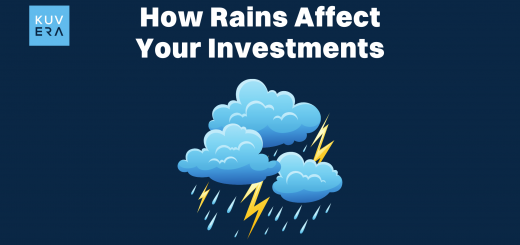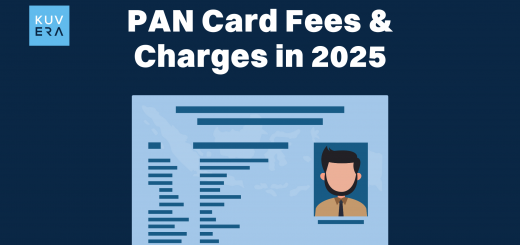Are you looking for a credit card against FD? It would be great to start your search with its meaning, features and usage. A credit card against fixed deposit is a secured credit card where the credit limit is backed by the amount deposited in a Fixed Deposit (FD). Having an FD account is the prerequisite for obtaining such a credit card.
How does a Credit Card against FD work?
Now let’s understand how credit cards against FDs work based on the following
Fixed Deposit Account: To apply for a credit card against an FD, the bank or financial institution requires you to have an FD with them. The FD amount acts as collateral, which secures the credit limit of the card. This security reduces the risk for the bank, making it easier to approve such credit cards. The FD remains active for as long as the credit card is valid. If the FD matures or is closed, the credit card usually needs to be closed or adjusted. It’s important to note that even though the FD is lien-marked, it continues to earn interest.
Credit Limit: The credit limit of the card is usually 80% to 90% of the FD amount. For instance, if you have an FD of ₹1,00,000, the bank might offer a credit limit of ₹80,000 or ₹90,000.
Interest Rates: The interest rates on credit card balances against FDs are generally higher than those on unsecured cards. However, they are lower compared to the rates charged on regular credit cards if payments are missed.
Usage: This credit card can be used just like any other credit card for purchases, online transactions, etc. If the cardholder misses the payment of the monthly credit bill, the bank can redeem the linked FD to recover the outstanding amount.
Start investing in Index Funds.
Who Should Apply for a Credit Card Against FD?
A secured credit card against a fixed deposit is an ideal option for individuals who:
- Need a credit card but face challenges in obtaining one
- Have irregular or uncertain income
- Possess a poor credit history or no credit history
- Lack of formal income proof
- Are freelancers, homemakers or similar
- Hold entry-level jobs with low income
What is the Process of Getting a Credit Card Against FD?
Here are the steps that take place when availing a credit card against fixed deposits.
1. Eligibility Check: Ensure you meet the eligibility criteria set by the bank. This often includes having a minimum FD amount, meeting age and income requirements and having a good credit score.
2. FD Creation: If you don’t already have an FD, you’ll need to open one, keeping in mind the duration and interest rate. The FD should be with the same bank where you’re applying for the credit card. The amount of the FD will determine the credit limit of the credit card.
3. Application: Apply for a credit card by filling out the application form provided by the bank. This can often be done online or in person at a branch. You may be required to submit documents such as identification proof, address proof and FD details.
4. Verification: The bank will verify your application and FD details. This process may involve checking your credit score and other financial aspects. However, this is less stringent for secured credit cards.
5. Card Issuance: Upon successful verification, the bank will approve the credit card application. It can either be received by mail or can be collected from the bank.
Closing a Credit Card Against FD
These are the steps you can follow if you are considering closing a credit card against fixed deposits.
1. Clear Outstanding Dues: Ensure that any outstanding balance on the credit card is paid off. This includes any unpaid transactions, accrued interest, late fees or other charges.
2. Request for Closure: Contact the bank to request the closure of the credit card. You may need to submit a formal request or fill out a closure form. This can typically be done through customer service via phone, email, or in person at a branch.
3. FD Adjustment: Once the credit card is closed, the bank will process the adjustment or release of the fixed deposit that was used as collateral. This involves either releasing the FD amount back to you or adjusting it according to the terms of your credit card agreement. If you want to retain the FD, you may need to convert it into a regular FD without the credit card lien.
4. Confirm Closure: After the closure process is completed, request written confirmation from the bank that the credit card has been officially closed and that any associated FD adjustments have been made. This confirmation should include details about the closure and the status of the FD.
5. Check Credit Report: Review your credit report to ensure that the closure of the credit card is accurately reflected. This will confirm that the account is marked as closed and there are no remaining balances or issues. If there are any discrepancies or if the closure does not appear on your report, contact the credit bureau to have the information corrected. This helps maintain an accurate credit history and score.
Note: This process can vary slightly depending on the bank’s policies, always check with your specific bank for procedures and requirements.
Benefits of Credit Card Against Fixed Deposits
These are some of the top benefits of using a credit card against fixed deposits.
- Building Credit Score: Consistent repayment of credit card bills helps establish a positive credit history and gradually improves your credit score.
- Fixed Deposit Continuity: Your FD remains an active investment generating returns. Interest on the FD continues to accrue while it is used as collateral for the credit card.
- Lower Fees: Credit card issuers generally charge lower joining and annual fees for FD-based credit cards compared to regular credit cards.
Wrapping up!
Getting a credit card against fixed deposits is simple and convenient. Depending on the bank or NBFC policies you can get a credit card approval in a quick and hassle-free way. While credit cards offer convenience and rewards, they can also lead to debt traps and financial woes. Remember to use them responsibly and pay balances in full each month as this can affect your credit score.
Interested in how we think about the markets?
Read more: Zen And The Art Of Investing
Watch here: 7-5-3-1 Rule of Investing in Mutual Funds
Start investing through a platform that brings goal planning and investing to your fingertips. Visit kuvera.in to discover Direct Plans of Mutual Funds and Fixed Deposits and start investing today.
AREVUK Advisory Services Pvt Ltd | SEBI Registration No. INA200005166
DISCLAIMER: Mutual Fund investments are subject to market risks. Read all scheme-related documents carefully. Registration granted by SEBI, membership of BASL (in case of IAs) and certification from NISM in no way guarantee performance of the intermediary or provide any assurance of returns to investors. Investments in securities market are subject to market risks. Read all the related documents carefully before investing. The securities quoted are for illustration only and are not recommendatory.












